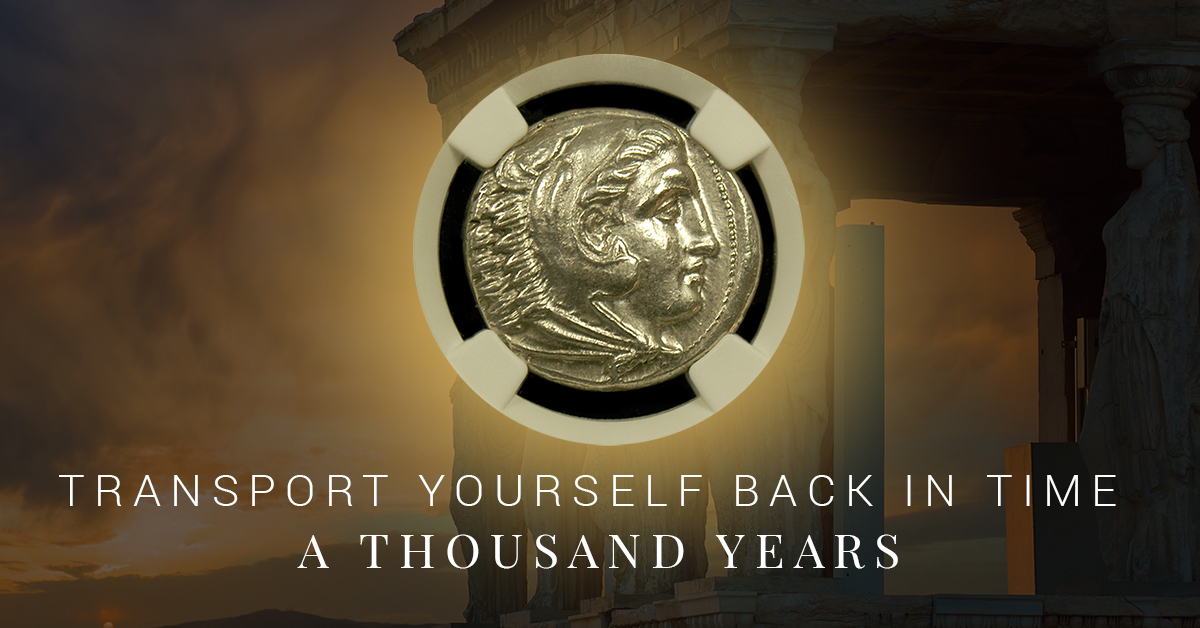A Brief History Of Ancient Greek Coins-Part 2

A kind of magic exists when you take the time to collect ancient Greek coins. When you look at one of these coins, or (carefully!) hold it, you can almost feel yourself transported back to a time, thousands of years ago. A time that is both radically different and exactly the same as the current epoch we live in. If you have decided to begin collecting these highly rare coins, you’re in for a treat. It’s a hobby that both demands and rewards patience, and requires a philosophy that understands total completion will never happen.
It also requires a degree of open-mindedness that can be difficult to come by at first. When we think of civilizations that existed over 2,000 years ago, we might assume they were somewhat crude and primitive. But just because the Greeks didn’t walk around with smartphones, it doesn’t necessarily mean they were lacking in sophistication. After an ancient Greek coin was designed, the design itself was carved into a block of iron. This was known as a hand die, and after the surface of a blank coin disc was heated up to soften the metal, the hand die was hammered into the disc. This imprinted the design, and after the metal of the disc cooled off, the design became permanent.
Maybe this process sounds a little old school. Take a closer look at the designs of some of the coins used. The craftsmanship is truly impressive considering not just how relatively low tech the process was, but how intelligently and artfully the designs were. The designs were centered with such precision, you’d swear it was done via computer. The motifs are done with high detail and a staggering degree of natural design.
At this point, if you’ve read this far, you’re probably interested. The next logical question you might have is, “So how do I get my hands on these coins?” As is so often the case, it’s not as easy as you’d think. The first step is to do your research and start learning about these coins. Check out guidebooks at your local library. Make it a point to go to coin shows featuring Greek coins. You can even contact an archaeologist or a professional numismatist.
For coin dealers like us, we like customers that not only ask lots of questions, but take their hobby seriously enough to ask us for our qualifications. We’ll always go over our professional bona fides with you, and any reputable coin dealer should be no different.
The internet is a great tool for research and tracking things down, but you need to have some degree of skepticism. You’ll see listings on auction sites or other coin collecting forums for ancient coins, and you can definitely go that route. But before handing over any money, always ask the seller for hard information about the background of a particular coin. If they can’t produce that, the odds are that the coin is either a counterfeit, or it was illegally looted from an archaeological site.
You’re taking the first steps into a hobby that’s incredibly rewarding and endlessly fascinating. There’s lots to learn, but feel free to reach out to us with any questions. Happy hunting!








